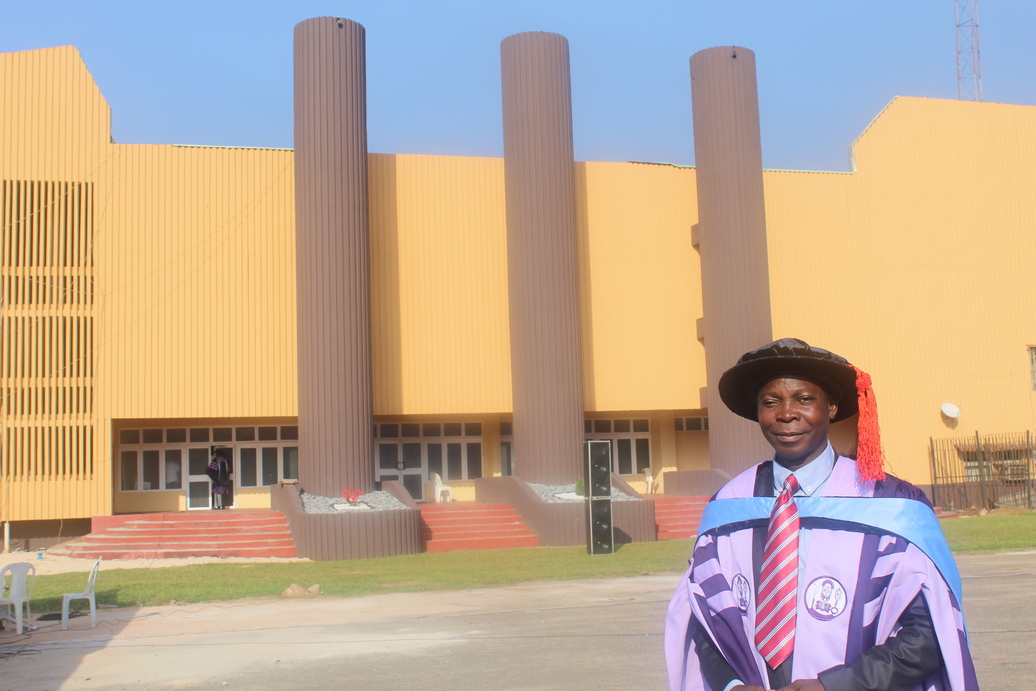HISTORY OF THE UNIVERSITY OF BENIN
The University of Benin (UNIBEN) is a government owned tertiary institution, established on the 23rd of November, 1970, by the then Colonel Samuel OsaigbovoOgbemudia-led military administration of Midwest State. The University was established, first as Midwest Institute of Technology.
After attaining the status of a full-fledged university in line with requirementsof the National Universities Commission on the 1st of July, 1971, the name was changed to the University of Benin. The Institution became a federal government owned University on the 1st of April, 1975.
The University, which commenced academic activities at the site of the Old Teachers’ Training College on Ekehuan Road (which is now one of the campuses of the University – Ekehuan Campus) with 109 students, now has an estimated 60,000 studentspopulation who are spread across the two campuses of the University.The University has 15 Faculties, 1 College and 3 Institutes.
The University has been headed by one rector and 10 Vice Chancellors. They are:
- Prof. Glynn Phillips – 1970 – 1972
- Prof. Kenneth Hill – 1972 – 1973
- Prof. John Harris – 1973 – 1974
- Prof. Tijani Yusuf – 1974 – 1979
- Prof. AdamuBaike – 1979 – 1985
- Prof. Grace Alele-Williams – 1985 – 1992
- Prof. Andrew Onokerhoraye – 1992 – 1999
- Prof. AbhulimenAnao – 1999 – 2004
- Prof. Emmanuel Nwanze – 2004 – 2009
- Prof. Osayuki Oshodin – 2009 – 2014
- Prof. Osasere Orumwense – 2014 – 2019
- Prof. Lilian Salami – 2019 – Till date
Out of the 10 Vice Chancellors that have led the Institution, two have been females; one of them, Professor Grace Alele-Williams, by her appointment as Vice Chancellor in 1985 was the first female Vice Chancellor of any Nigerian University while the second female is the current Vice Chancellor, Professor LilianImuetinyan Salami.
Since the establishment of the University, it has continued to break new grounds in the realization of its goals of teaching, learning, research and community service. It undertakes programmes at various levels of graduate and postgraduate, for which students are admitted annually. It is important to note that nearly all courses offered at the University of Benin are, by 2021, fully accredited.
For over five decades of its existence, the University of Benin has grown to mentor other institutions thatoperate as affiliate institutions to the University.They include: Lagos State University, Akoka, Lagos; College of Education, Warri; College of Education, Asaba; College of Education, Mosogar, and the National Institute for Legislative and Democratic Studies, Abuja.
The University of Benin is also renown for collaborative researches with other universities -nationally and Internationally –including the Lancaster University, England .
Also, the University has gained national, regional and international recognition with its pioneering drive in several areas; it is the first University in Nigeria to award degrees in Industrial Chemistry, first Nigerian University to develop an indigenous software for the conduct of Computer Based Testing (CBT), first Nigerian University to award Ph.D in Optometry, first University in South South geo-political zone of Nigeria to establish a Faculty of Veterinary Medicine, and in 2011, the University was ranked as the number one University in West Africa by WEBOMETRICS.
As a result of the University’s innovative and academic strides as well as accomplishments, the Institution has been designated Centres of Excellence in the following areas:
- Centre of Excellence in Reproductive Health Innovation (CERHI) – sponsored by the World Bank.
- Centre of Excellence in Geosciences and Engineering – sponsored by Shell Petroleum Development Company of Nigeria.
- Centre of Excellence in Aquaculture and Food Technology – sponsored by the Tertiary Education Trust Fund (TETFund).
- Centre of Excellence in Innovations and Research Development – sponsored by TETFund.
- Centre of Excellence in Sustainable Procurement, Environmental and Social Standards Enhancement (SPESSE) – sponsored by the World Bank.
With an estimated 350,000 alumni, the Institution has continued to display its greatness which is evident in the human capital it has produced for Nigeria and the world.In all spheres of Nigeria’s development endeavours, there is a representative of the great UNIBEN, notably inleadership roles. Even on a global scale, the alumni of the University are setting worthy and commendable examples.
